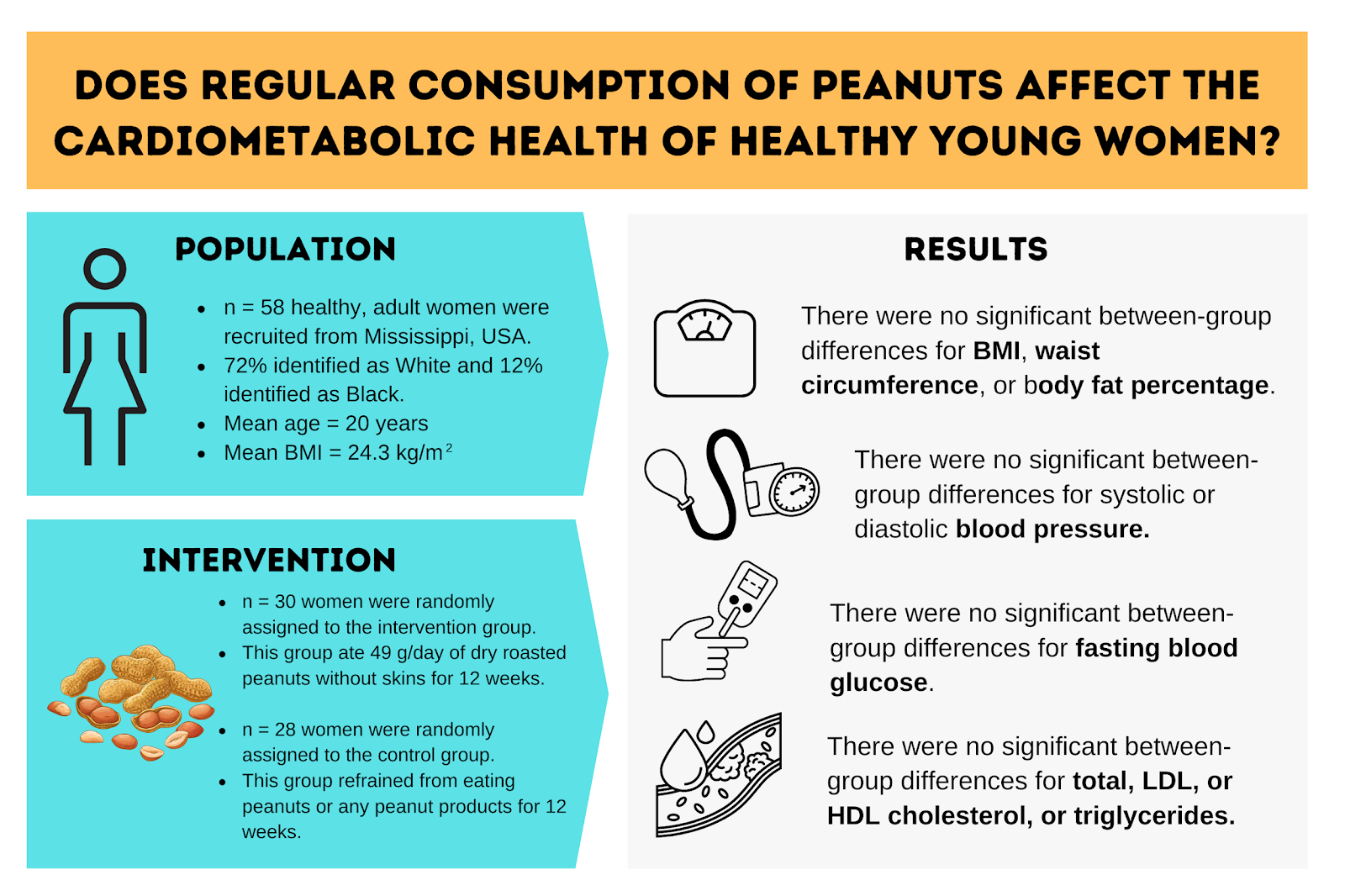The effect of daily peanut consumption on indicators of metabolic health among healthy young women
DOI:
https://doi.org/10.31989/ffhd.v13i12.1193Abstract
Background:Regular consumption of nuts and peanuts may reduce the risk of cardiovascular disease due to the bioactive compounds found within them. Previous research suggests that including nuts and seeds as part of an overall healthy dietary pattern may help manage blood pressure, cholesterol, triglyceride, and fasting blood glucose levels, but few studies have examined the specific effect of dry-roasted, skinless peanuts on these outcomes.
Objective:The objective was to examine the effect of regular consumption of dry-roasted, skinless peanuts on markers of metabolic health among women.
Methods:This was a pre-post test study. Eligible women were randomized into either the intervention group (49 g peanuts/day, n=30) or the control group (participants’ usual diet minus peanuts, n=28) for 12 weeks. Anthropometrics, cholesterol, triglyceride, fasting blood glucose, and blood pressure levels were measured at baseline and end-line.
Results:There were no significant between-group differences for any of the outcomes of interest. For the peanut group, there was a significant within-group decrease in systolic blood pressure (-7.0 mmHg; 95% CI: 1.3, 12.6), and a significant increase in total: HDL cholesterol ratio from baseline to endline (0.2; 95% CI: -0.3, 0.02). There was a significant within-group decrease in diastolic blood pressure for the control group (-6.3 mmHg; 95% CI: 2.0, 10.6).
Conclusion:Among healthy young women, the addition of daily peanuts to a usual diet does not appear to negatively affect body composition as measured by BMI, waist circumference, and body fat percentage. Further research is needed to fully elucidate the effect of peanut consumption on indicators of cardiovascular health in different populations.

Keywords: Nuts, Peanuts, Blood Pressure, Cholesterol, Metabolic Health, Women
Downloads
Published
Issue
Section
License
Any manuscripts or substantial parts of it, submitted to the journal must not be under consideration by or previously published in any other journal or citable form. Authors are required to ensure that no material submitted as part of a manuscript infringes existing copyrights or the rights of a third party. In submitting one's article in any form, the author has assigned the FFC publishing rights and has agreed to an automatic transfer of the copyright to the publisher. This is so that the FFC may create print option journals, for example, at the FFC’s discretion. If the author wishes to distribute their works by means outside of the FFC, for example within their community, they will have to place a request.
Correspondence concerning articles published in Functional Foods in Health and Disease is encouraged. While derivative works (adaptations, extensions on the current work, etc.) are allowed, distribution of the modified material is not allowed without permission from the FFC.